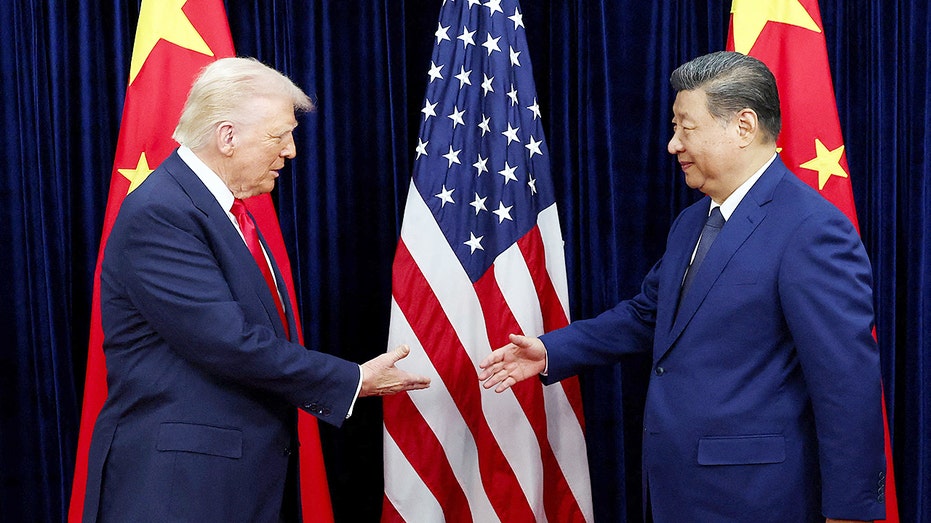A week of high-stakes diplomacy and assertive action unfolded as President Trump journeyed through Asia, engaging with world leaders while simultaneously authorizing a surge in operations targeting alleged drug trafficking in Latin America.
The centerpiece of the trip was a meeting with Chinese President Xi Jinping in South Korea, a session billed as crucial for navigating the complex trade relationship between the two nations. A surprising concession emerged: Trump announced a 10% reduction in tariffs on Chinese imports, lowering the rate from 57% to 47%, in response to China’s pledge to collaborate on combating the fentanyl crisis.
Further easing tensions, Trump revealed he would postpone the implementation of a proposed 100% tariff on additional Chinese goods. This decision followed China’s earlier announcement of export controls on rare earth magnets, a move now delayed by a year through agreement. The President, visibly pleased, declared the meeting a resounding success, predicting a comprehensive trade deal was within reach.
Xi Jinping echoed the sentiment, emphasizing the need for cooperation and a focus on mutual benefit. He urged both countries to avoid a cycle of retaliation, prioritizing long-term stability and the collective well-being of the world. His words painted a picture of shared responsibility and a desire for peaceful resolution.
The Asia trip also included a startling announcement regarding U.S. nuclear policy. Trump declared his intention to revive nuclear weapons testing, a practice abandoned since 1992. This unexpected move sparked immediate questions and concern among lawmakers, experts, and military personnel, leaving the specifics of his plan unclear.
Speculation centered on whether the testing would involve nuclear-powered systems or low-yield weapons. Vice President Vance clarified the rationale, stating the goal was to ensure the continued functionality and reliability of the U.S. nuclear arsenal, a vital component of national security.
Simultaneously, the administration escalated its efforts against drug cartels in Latin America, authorizing at least fourteen strikes against suspected drug vessels. These operations, concentrated in the Eastern Pacific, signaled a more aggressive approach to disrupting the flow of illicit substances.
Reports surfaced suggesting potential strikes against military targets within Venezuela, but the White House quickly dismissed these claims. While Trump acknowledged the possibility hadn’t been ruled out, he stopped short of confirming any imminent action.
The increased military activity prompted a strong reaction from Congress. A bipartisan group of lawmakers, including Republicans, introduced a war powers resolution aimed at prohibiting U.S. armed forces from engaging in hostilities against Venezuela, raising serious questions about the legality and scope of the administration’s actions.
Concerns were voiced that the administration’s actions extended beyond simply interdicting drug shipments, potentially venturing into unauthorized military intervention. The debate highlighted the delicate balance between national security interests and respecting international law and congressional authority.






